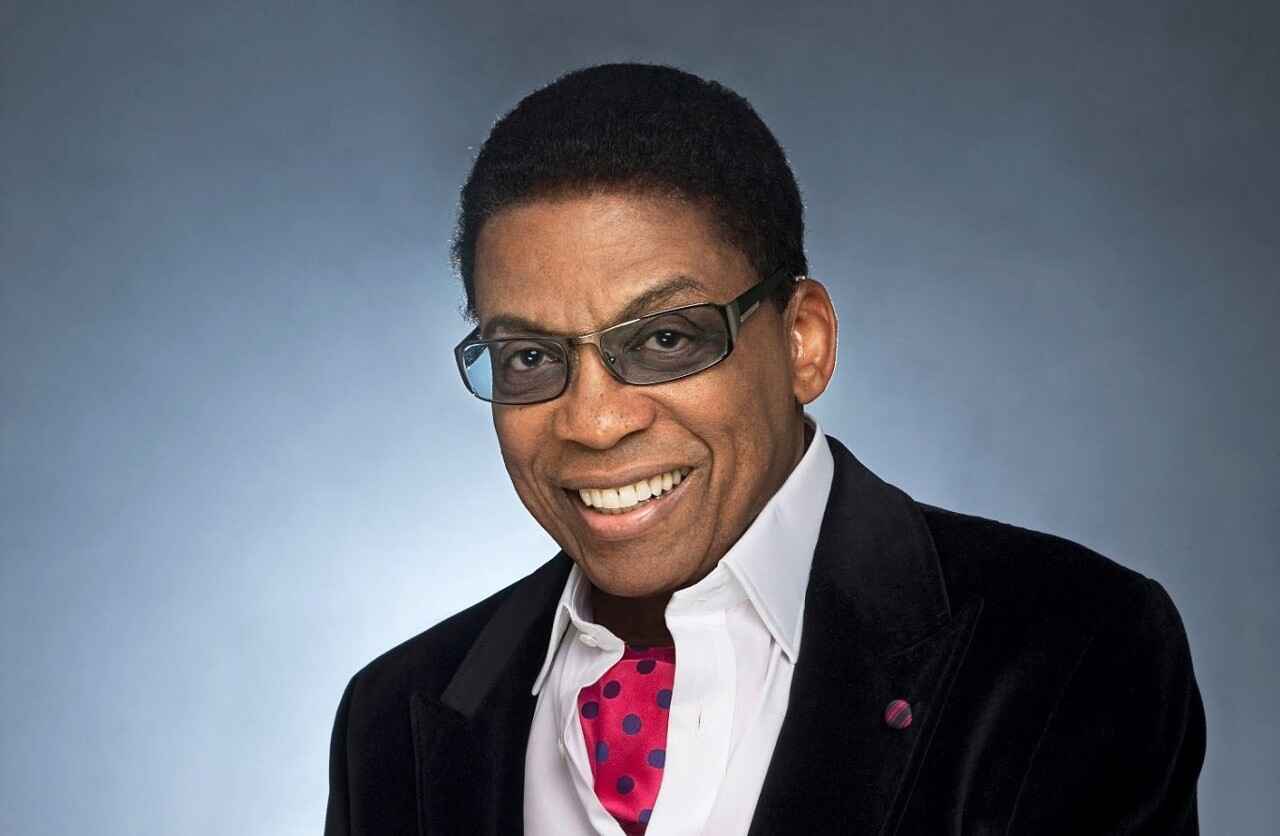Early years
Herbie Hancock was born on April 12, 1940 in Chicago. He is the son of Winnie Belle and Wayman Edward Hancock. His parents named him after the singer and actor Herb Jeffries. He studied from age seven, and his talent was recognized early. At the age of 11, he performed the first movement of Mozart's Piano Concerto No. 26 in D Major, K. 537 (Coronation) at a young people's concert on February 5, 1952, with the Chicago Symphony Orchestra (led by CSO assistant conductor George Schick). Through his teens, Hancock never had a jazz teacher however he developed his ear and sense of harmony. In 1960, he heard Chris Anderson play just once and begged him to accept him as a student.
Early Career
Hancock left Grinnell College, moved to Chicago, and began working with Donald Byrd and Coleman Hawkins. During this time he also took courses at Roosevelt University (later graduating from Grinnell with degrees in electrical engineering and music). Grinnell also awarded him an honorary Doctor of Fine Arts degree in 1972. Byrd was attending the Manhattan School of Music in New York at the time and suggested that Hancock study composition with Vittorio Giannini (which he did for a short time in 1960). The pianist quickly earned a reputation, and played subsequent sessions with Oliver Nelson and Phil Woods.
Early success
He recorded his first solo album Takin' Off for Blue Note Records in 1962. "Watermelon Man" (from Takin' Off) was a hit single. Takin' Off caught the attention of Miles Davis, who was at that time assembling a new band. Hancock was introduced to Davis by the young drummer Tony Williams, a member of the new band.
Herbie and Miles
Hancock received considerable attention when, in May 1963, he joined Davis's Second Great Quintet. Davis personally sought out Hancock, whom he saw as one of the most promising talents in jazz. This quintet is often regarded as one of the finest jazz ensembles. While in Davis's band, Hancock also found time to record dozens of sessions for the Blue Note label, both under his own name and as a sideman with other musicians such as Grant Green, Bobby Hutcherson, Kenny Dorham, Hank Mobley, Lee Morgan, Freddie Hubbard, and Eric Dolphy.
Herbie's film scores
During this period, Hancock also composed the score to Michelangelo Antonioni's film Blowup (1966), the first of many film soundtracks he recorded in his career. As well as feature film soundtracks, Hancock recorded a number of musical themes used on American television commercials for such then well known products as Pillsbury's Space Food Sticks, Standard Oil, Tab diet cola and Virginia Slims cigarettes. Hancock also wrote, arranged and conducted a spy type theme for a series of F. William Free commercials for Silva Thins cigarettes. Hancock liked it so much he wished to record it as a song but the ad agency would not let him. He rewrote the harmony, tempo and tone and recorded the piece as the track "He Who Lives in Fear" from his The Prisoner album of 1969.
Change in Musical Style
Hancock began doubling on electric keyboards including the Fender Rhodes electric piano at Davis's insistence. Hancock adapted quickly to the new instruments, which proved to be important in his future artistic endeavors.
The Headhunters
Hancock was dismissed from Davis's band and in the summer of 1968, Hancock formed his own sextet. After leaving Davis, Herbie put together a new band called The Headhunters and, in 1973, recorded ‘Head Hunters.’ With its crossover hit single “Chameleon,” it became the first jazz album to go platinum. By mid-decade, Herbie was playing for stadium-sized crowds all over the world and had no fewer than four albums in the pop charts at once. In total, Herbie had 11 albums in the pop charts during the 1970s. His ’70s output inspired and provided samples for generations of hip-hop and dance music artists.
Herbie's awards
In 1980, Herbie introduced the trumpeter Wynton Marsalis to the world as a solo artist, producing his debut album and touring with him as well. In 1983, Herbie started to collaborate with Bill Laswell. ‘Future Shock’, struck platinum, and the single “Rockit” was a hit in the dance and R&B charts, winning a Grammy for Best R&B Instrumental. The video of the track won five MTV awards. ‘Sound System’, the follow-up, also received a Grammy in the R&B instrumental category. Herbie won an Oscar in 1986 for scoring the film “‘Round Midnight”, in which he also appeared as an actor.
The New Millennium
Herbie reunited with Bill Laswell to collaborate with some young hip-hop and techno artists on 2001’s FUTURE2FUTURE. He also joined with Roy Hargrove and Michael Brecker in 2002 to record a live concert album, ‘Directions In Music: Live at Massey Hall’, a tribute to John Coltrane and Miles Davis. ‘Possibilities’, released in August 2005, teamed Herbie with many popular artists, such as Sting, Annie Lennox, John Mayer, Christina Aguilera, Paul Simon, Carlos Santana, Joss Stone and Damien Rice. That year, he played a number of concert dates with a re-staffed Headhunters, and became the first-ever Artist-In-Residence at the Tennessee-based festival Bonnaroo. In 2007, Hancock recorded and released ‘River: The Joni Letters’, a tribute to longtime friend and collaborator Joni Mitchell featuring Wayne Shorter, guitarist Lionel Loueke, bassist Dave Holland and drummer.
Personal Life
Hancock has a 50-year-plus marriage to Gigi Hancock, who he married August 31, 1968. Herbie and Gigi have a daughter, Jessica. Since 1972, Hancock has practiced Nichiren Buddhism as a member of the Buddhist association Soka Gakkai International.
